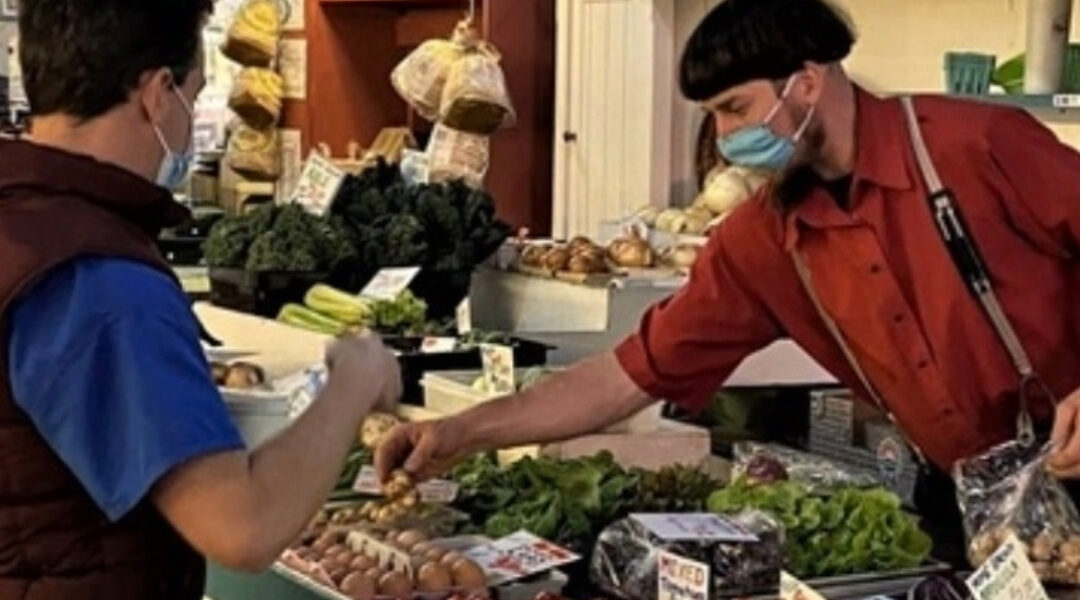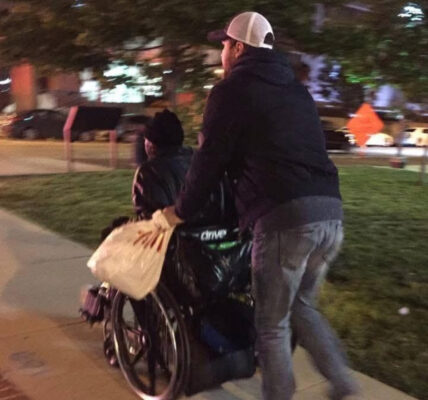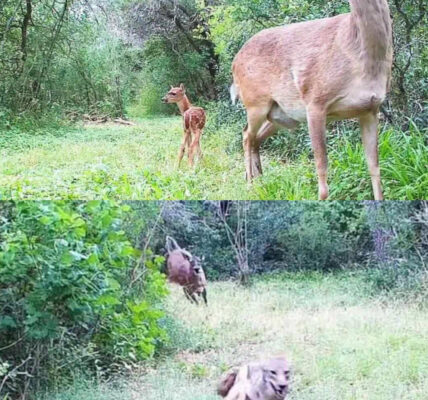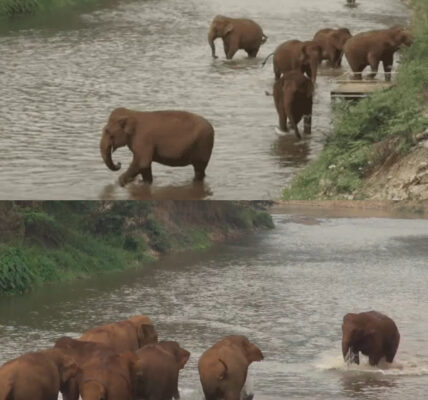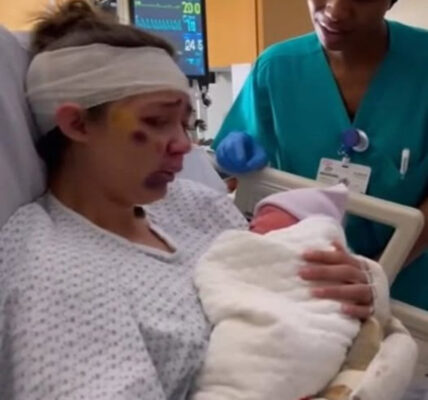
Ten days ago, I did something I had thought about for years but never had the courage to do.
It was an ordinary morning — cold, gray, quiet. I was walking through Steinman Park on my way to Central Market, camera in hand, lost in thought, when I saw her.
She sat alone on a bench, carefully picking at invisible lint on her gloves — focused, patient, as though the task were keeping her world in order. Beside her was a cart stacked high with bags, blankets, and the scattered remains of a life lived in motion.
Her name, I would later learn, was Beverly.
I walked past her at first. Most people did. But after a few steps, something pulled at me — that small, stubborn whisper we often ignore: Go back.
So I turned around.
I stood near her, unsure of what to say, afraid of sounding condescending, afraid of being awkward, afraid of doing it wrong. But I spoke anyway.
“I, uh… was wondering if you’ve had anything to eat today?”
She shook her head gently. “No.”
I hesitated — still unsure — then said, “Well, I’m headed to Central Market. Would you like to come with me and find something to eat?”
She nodded. That’s how it began.
As we walked, I learned fragments of her story. She had a place to live, she said, but also lived on the street. She had children somewhere, though she wasn’t sure where. Her words drifted between past and present, between “I” and “we,” like leaves caught in the wind — never quite settling, never quite clear.
At the market, I bought some fruit from a young Amish vendor, the kind of simple exchange most people take for granted. I asked Beverly what she liked. She wasn’t sure. Food, it seemed, was less about choice and more about survival.
Finally, she said softly, “Coffee. I’d love some coffee.”
So we sat for a moment — two strangers, two cups of coffee, the quiet hum of the market around us. She didn’t say much. She ate slowly, methodically, as though savoring something far larger than a meal — the feeling of being seen.
When she finished, she thanked me, gathered her things, and disappeared into the afternoon crowd.
It was such a small act — a lunch, a few dollars, an hour of time — and yet, it felt like something had shifted.
As I walked home, I realized how long I’d carried that guilt — the countless times I’d walked past people like Beverly, telling myself I was too busy, or that someone else would help.
I wrote her story that night, not because it made me feel good, but because it made me feel human.
That was three years ago.
Since then, every time I visit Central Market, I still look for her — for Beverly, or someone like her. Sometimes I see her. Sometimes I don’t. But I always carry her memory with me — her quiet patience, her invisible lint, her fragile dignity.
I used to think kindness had to be grand — life-changing, world-saving. But Beverly taught me that it doesn’t. Sometimes, it’s as small as turning back when you could have kept walking.
If you’ve never done it before, maybe you should try. There’s a first time for everything.
And instead of carrying the guilt of what you didn’t do, you can carry the quiet warmth of what you did — the knowledge that, even for one hungry person, you made the world a little less lonely.
